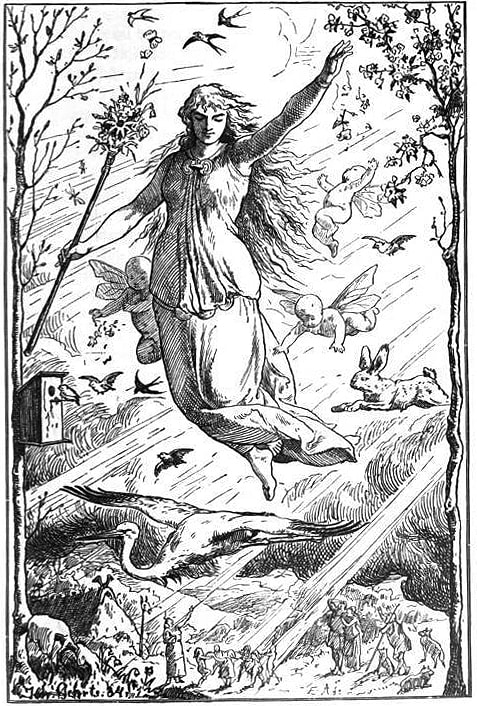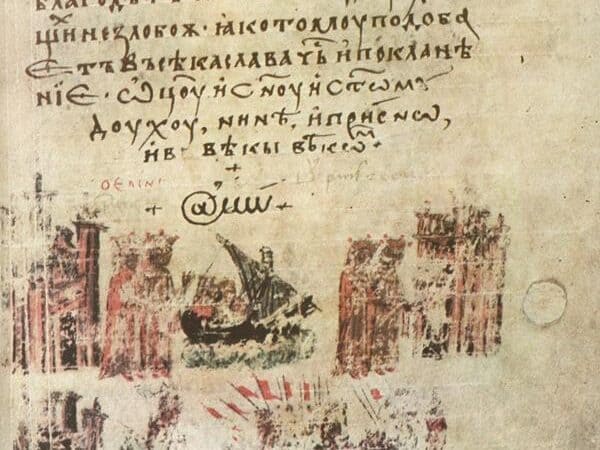Origins of the word Easter

Easter in other languages
In many languages the word for Easter derives from the Jewish word ‘pesach’ or ‘passover’, a major Jewish Spring festival which celebrates the exodus of the Isrealites from slavery in Egypt in the 1200s BC.
Hebrew – pesach
French – paques
Italian – pasqua
Spanish – pascua
Swedish – påsk
Romanian – paște
Pesach means passover or skip. One theory is that it comes from the idea that God was ‘passing over’ the homes of Jews when he was killing the firstborn sons of Egypt during the plague. But others believe it comes from the Assyrian ‘pasach’ or placate; as the ancient Assyrians would ‘placate’ the gods at this time of year by offering a sacrifice.
But what about the English word for Easter?
Ēostre was the West Germanic goddess of Spring. Ēosturmōnaþ was the word for April, as in, Ēostre’s month.
English is a language which originated from West Germanic at least 2,000 years ago. In Old English Ēostre became Ēastre.
Ostara/Eostre – Goddess of Spring, Old High German
Eastre – Old English

Eostre was also known as the Goddess of Dawn, as the dawn of spring.
Bonus fact: The word April means opening, as in the opening of flowers
The word April comes from Aprilis, the Ancient Roman word for April. Aprilis comes from aperire, meaning; to open, as this was the month when all the flowers and blooms open.
Aperire – to open
Aprilis
April
Sources:
From Easter to Ostara: the Reinvention of a Pagan Goddess? – Taylor and Francis
Tzarich Iyun: The Meaning of “Pesach” – Rabbi Dr. Ari Zivotofsky
The Enigmatic Origins of the Words of the Passover Seder – Haaretz
Archane Alchemy – All About Eostre – The Pagan Goddess of Dawn
Why is it called Easter? – Dictionary Online
What’s in a name? Months of the year – British Museum






